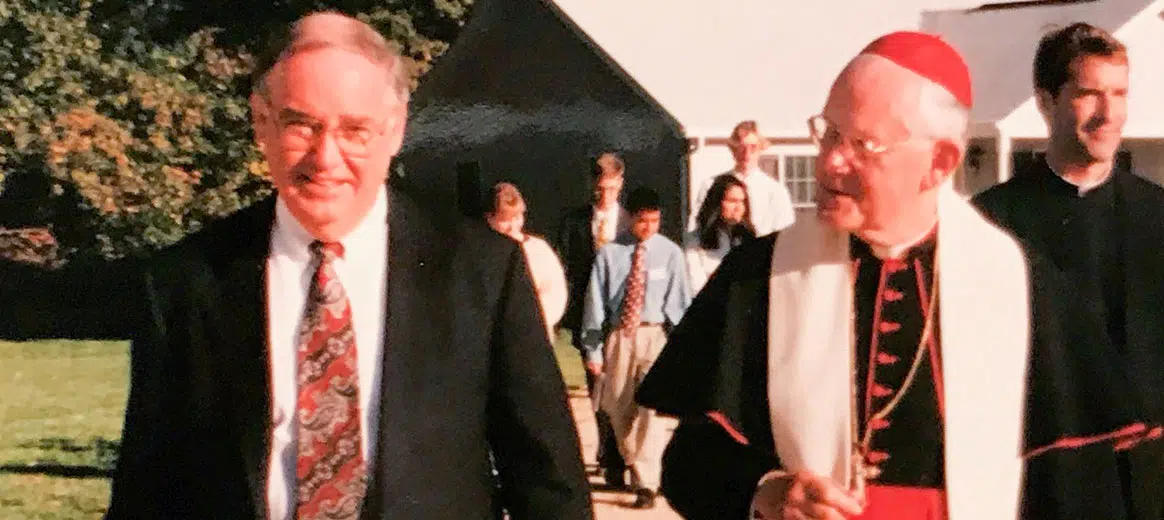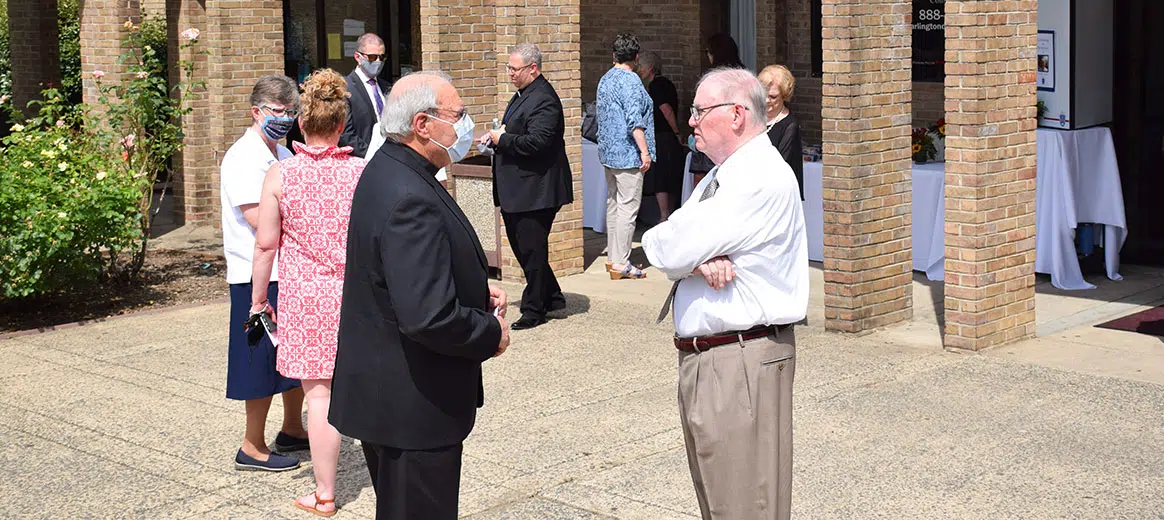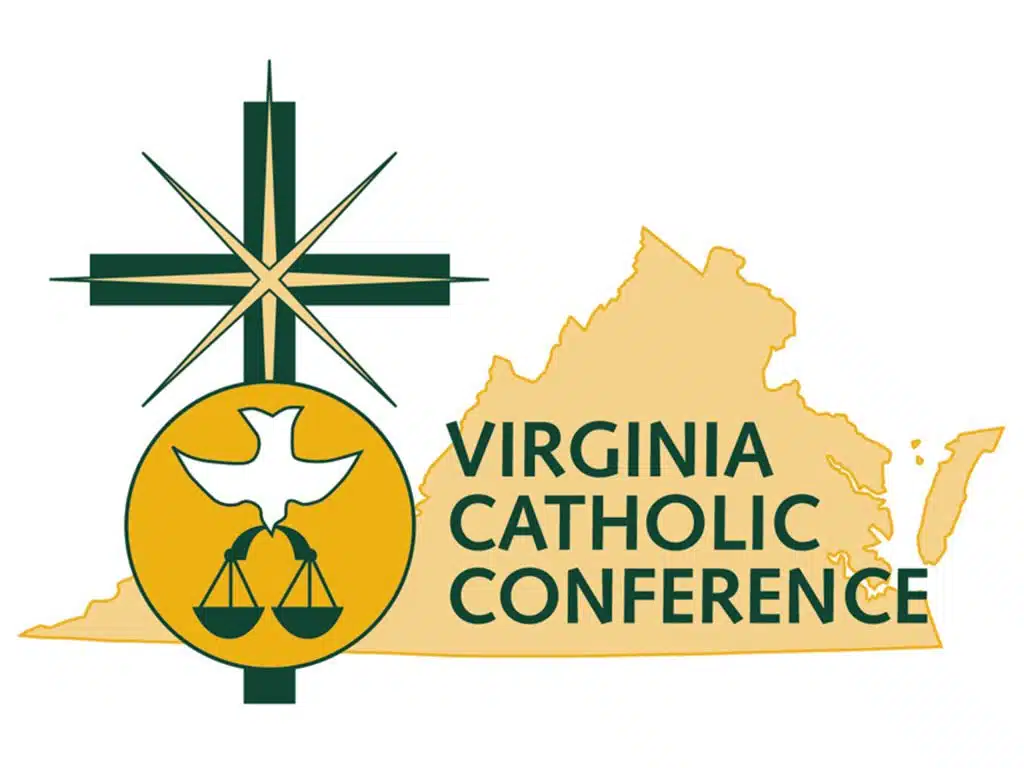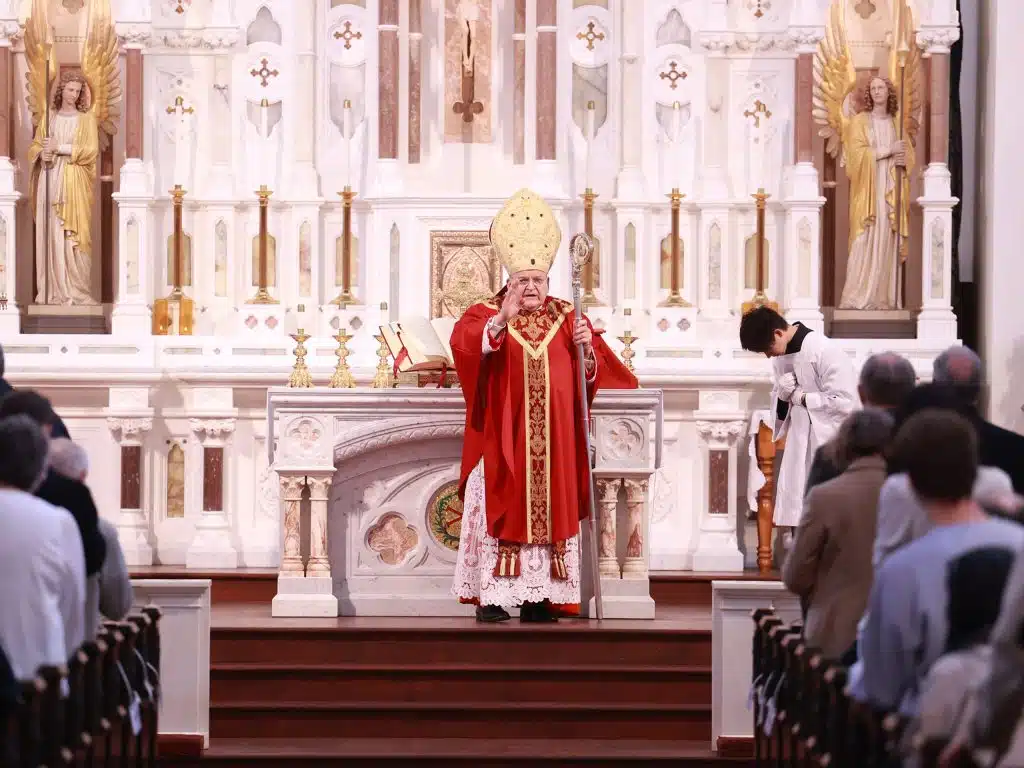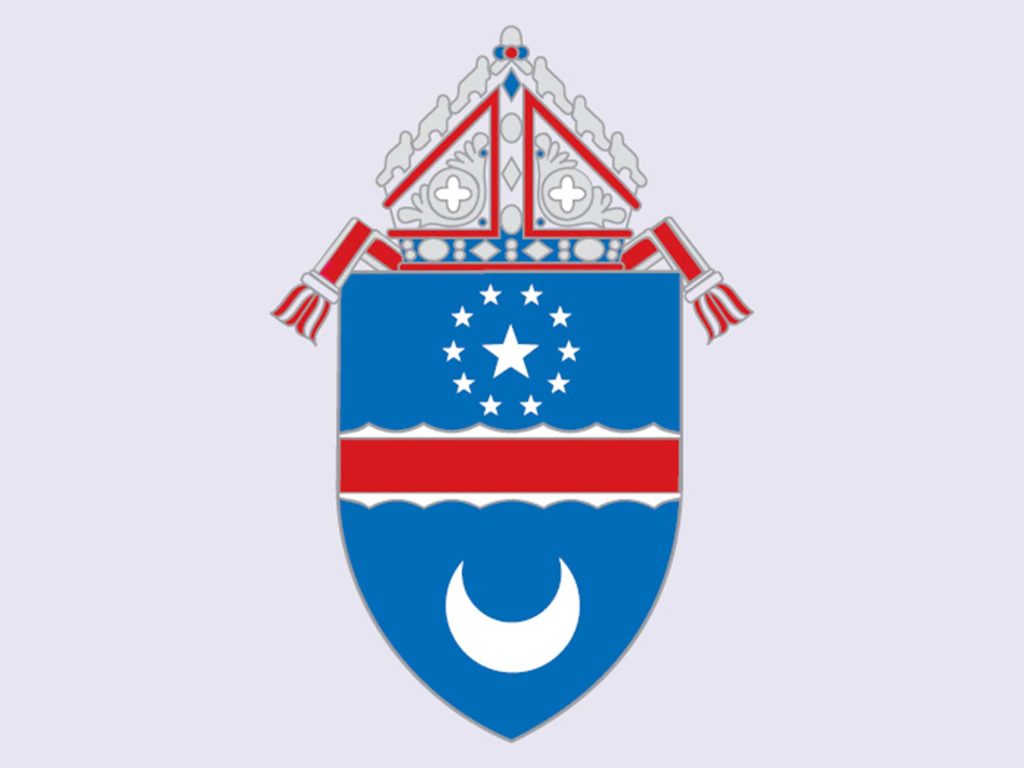When he started his career as a teacher at an inner-city Catholic
high school in Washington in 1964, Dan Curtin had no ambitious plans to rise
through the ranks of Catholic education, advising bishops and cardinals, and becoming
a leader in the organization that serves as the national voice for Catholic
schools.
“I never applied for any of these jobs, except the first one as a
teacher,” said Curtin, reflecting on his 56-year career in Catholic education.
“All along the way, somebody has invited me to move into this position or that
position. I was just happy knowing what I was doing at the time.”
Curtin retired in late June from his latest position as a Catholic
education consultant in the Arlington Diocese, a role to which he was invited
in 2011 by Bishop Paul S. Loverde. At that time, Curtin had just retired as executive director of the Chief Administrators of Catholic Education of the National Catholic Educational Association, where he served
from 1999 to 2011. Since joining the Arlington Diocese, he has assisted in a
variety of leadership functions, from heading executive searches to training
and mentoring future principals and other diocesan school leaders.
Curtin spent 21 years at Mackin, the Catholic high school for
boys in Washington, where he began his career. Run by the Brothers of Holy
Cross, the school served mostly Black teens. Curtin’s time there included nine
years as principal — he was the first lay principal in any of the order’s schools
in the United States. It now runs 16 high schools.
His first boss and mentor, Brother Ralph Jaworsky, taught him “how
to be an administrator and a teacher.” When Curtin was given a task for which
he felt unqualified, such as teaching English despite having a history
background, Brother Ralph would simply say, “You’re young, you’ll learn.”
As principal at Mackin, Curtin got to know Washington Cardinal James
Hickey, who in 1985 asked Curtin to join his personal staff as secretary for Catholic
Education for the archdiocese.
In 1989, Cardinal Hickey appointed Curtin acting president of
Archbishop Carroll High School, with the task of combining three under-enrolled
archdiocesan high schools into one larger co-ed school that could provide more
programs and better serve students. It was necessary, but difficult, Curtin
said; Mackin was one of the schools that closed. At meetings about the
closings, “kids were crying, and the cardinal said, ‘I can deal with a lot of
things, but I can’t deal with kids crying,’ ” Curtin recalled.
“Cardinal Hickey was a wonderful, wonderful man, who showed his
love for people who were struggling,” he added. Curtin often accompanied the
cardinal on visits to inner-city schools, and in the poorest neighborhoods, “he
would reach in his pocket and pull out a wad of bills,” to give to the
principal, saying, “ ‘Please do something for the kids.’ ”
At one school, a young boy asked how many countries the cardinal
had visited, and they had a lively discussion. Curtin said the cardinal’s eyes
teared up when one of the sisters told them afterward that the child’s mother
was a drug addict, his father was in prison and his grandmother was using her
Social Security check to send him to Catholic school so he could have a better
life. “That’s why we’ve got to do this,” the cardinal said.
When people asked why the church was so involved in educating
inner city children who were not Catholic, Curtin said Cardinal Hickey would
famously reply, “We don’t do it because they’re Catholic, we do it because we’re
Catholic. We’re providing these kids with a chance at a life.”
“I treasure those years and got to know and love the Black
community,” Curtin said. He still keeps in touch with many of his former
students. He said two are now pastors in the archdiocese and some became
doctors. Another, Adrian Fenty, was mayor of Washington from 2007 to 2011.
Curtin said it’s been difficult to see incidents of racism and
police brutality dominate recent headlines, sparking protests that bring back memories
of Washington’s race riots in 1968, not far from his school.
“We’ve got a lot to do in this country in terms of race
relations,” he said, but he sees signs of hope. “In the 1968 riots, it was
mostly Black people that were protesting and fighting. Now you notice a lot of
white people are joining the protests. I kind of see that as a move in the
right direction, and that’s been very encouraging,” he said.
One of his biggest current concerns is how the ongoing coronavirus
pandemic will affect Catholic schools, with “parents out of work and not
getting paid. We’re going to see a huge drop in Catholic school enrollments,” he
predicted, saying he knows of 100 schools already forced to close.
He sees some positive developments on the horizon as well, such
as innovative educational models including the Cristo Rey network of Catholic
schools, which blends rigorous academics, Catholic values and a professional
work study program, as well as support for students through college. There are
now 37 Cristo Rey schools serving low-income students in 24 states. “I think
it’s a wonderful idea, and we may need to do that sometime here,” Curtin said.
At age 78, Curtin, who never married, still takes the idea of retirement
with a grain of salt. He plans to stay involved in a number of ongoing projects
and continue in various education-related roles, including his work with the Leadership
Academy and as an adjunct professor at Marymount University in Arlington. He’ll
also remain active in his parish, St. Anthony of Padua in Falls Church, which
his family attended since he was in the eighth grade and where Curtin now
serves as chair of the pastoral council.
